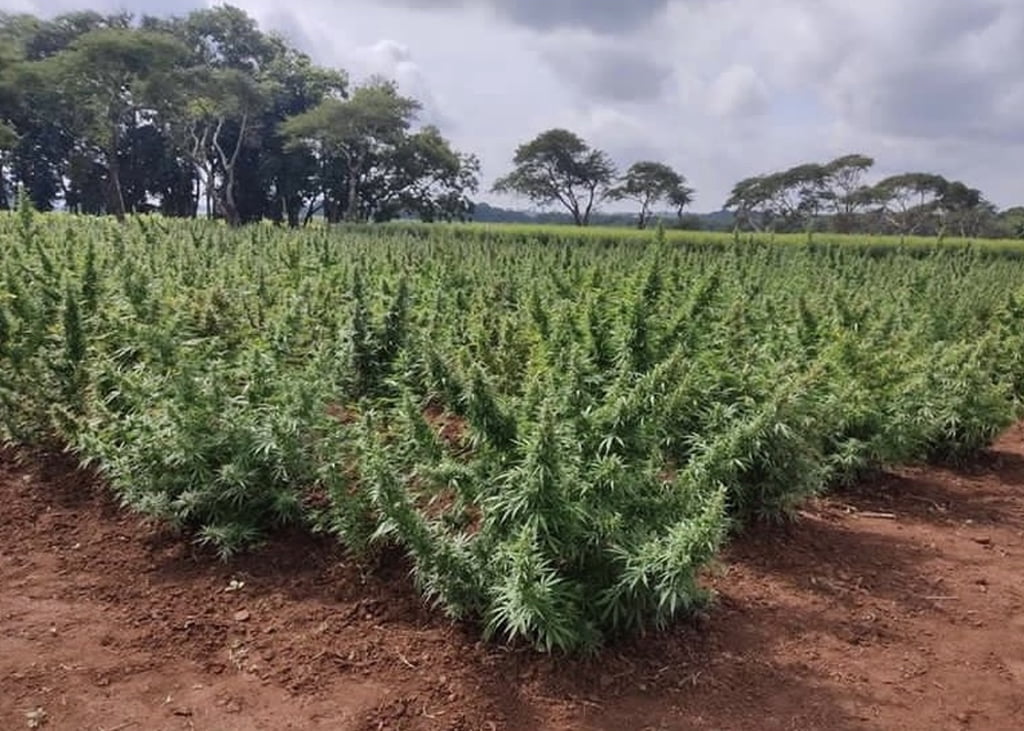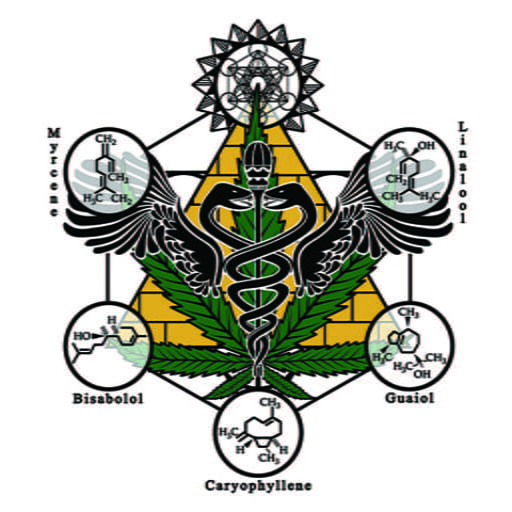
Hemp farming has emerged as an important part of modern agriculture, offering several opportunities in industries ranging from health and wellness to textiles and beyond. However, the success of any hemp farming practice lies in one critical factor: quality genetics. This article shall discuss the essential aspects of finding quality hemp genetics to lay the foundation for successful hemp farming.
What is hemp genetics?
Hemp genetics refers to the genetic makeup or characteristics found within hemp plants. These genetics determine various traits exhibited by the plant, such as its growth patterns, cannabinoid profile, and terpene composition, resistance to pests and diseases, and overall adaptability to different environmental conditions.
At a molecular level, hemp genetics dictate the expression of specific genes responsible for the synthesis of cannabinoids such as CBD (cannabidiol) and THC (tetrahydrocannabinol), which are two of the most popular and studied compounds found in hemp. Additionally, hemp genetics influence the plant’s morphology, including its height, leaf structure, and flowering patterns.
Importance of quality genetics in hemp farming
The importance of quality genetics in hemp farming must be considered. Quality genetics are the bedrock of successful hemp cultivation, influencing every aspect of the farming process from seed to harvest. Here are several key reasons why quality genetics are important in hemp farming:
- Consistent cannabinoid profile
One of the primary goals of hemp farming is often to produce plants with high levels of cannabinoids such as CBD while keeping THC levels below the legal limit of 0.3%. Quality genetics ensure consistency in cannabinoid profiles, allowing farmers to reliably produce plants with the desired CBD and compliant levels of THC. For instance, our feminized seeds have a high level of CBD up to 15 percent. You can check out our variety pages for more information.
- Enhanced disease resistance
Hemp plants are susceptible to various pests, diseases, and environmental stressors. Quality genetics can proffer resistance or tolerance to common pests and diseases, reducing the need for chemical pesticides and herbicides. This promotes a more sustainable farming practice and minimizes crop losses due to pest infestations or disease outbreaks. Hemp varieties from Davis Hemp farms are resistant to pest and diseases and harsh weather conditions like drought.
- Increased yield potential
Selecting hemp genetics with high yield potential can significantly impact a farming operation’s productivity and profitability. Quality genetics may produce larger, more robust plants capable of producing higher quantities of biomass, flowers, or seeds, maximizing overall acre yield. Read our previous article on how profitable hemp farming can be per acre.
- Improved terpene profile
Terpenes are aromatic compounds found in hemp and other plants, contributing to their distinct flavours and aromas. Quality genetics can result in plants with desirable terpene profiles, enhancing the sensory experience and market appeal of hemp-derived products such as CBD oils, tinctures, and edibles.
- Adaptability to environmental conditions
Hemp is a versatile crop capable of thriving in various climates and soil types. However, selecting genetics well-adapted to local environmental conditions can further enhance plant health, resilience, and overall performance. Quality genetics may exhibit drought tolerance, cold hardiness, or suitability for specific soil types, allowing farmers to optimize their cultivation practices and minimize risk.
Key Traits to Consider in Hemp Genetics
Before exploring hemp genetics for farming, several key traits should be considered to optimize success and profitability. Each trait plays an important role in determining the suitability of hemp cultivars for specific farming environments and end-product goals. Below are key traits to consider when selecting hemp genetics:
- CBD Content
CBD content is a very important trait, particularly for farmers targeting the extraction market or producing CBD-rich hemp products. Opting for cultivars with high CBD content ensures maximum yield potential for CBD extraction, catering to the demand for CBD-based wellness products.
- THC Content
THC content is equally significant, especially in regions with strict regulatory frameworks. Hemp varieties must maintain THC levels below the legal threshold (typically 0.3%) to comply with regulations. Selecting genetics with stable and predictable THC levels reduces the risk of non-compliance and ensures legal cultivation practices.
- Disease Resistance
Disease resistance is essential for safeguarding hemp crops against common pests, pathogens, and environmental stressors. Cultivars with robust disease resistance traits require fewer chemical interventions, promoting sustainable farming practices and reducing production costs. Prioritizing disease-resistant genetics enhances crop resilience and overall farm productivity.
- Yield Potential
Yield potential is a fundamental consideration for maximizing hemp farm profitability. Selecting high-yielding hemp cultivars optimizes biomass or flower production per acre, increasing overall crop yield and revenue. Farmers should assess genetic traits related to biomass accumulation, flower development, and overall plant vigour to identify cultivars with superior yield potential.
- Terpene Profile
Terpenes are aromatic compounds that contribute to hemp-derived products’ flavour, aroma, and therapeutic properties. Cultivars with diverse and desirable terpene profiles offer enhanced marketability and consumer appeal. Tailoring genetics to prioritize specific terpenes allows farmers to produce hemp extracts with unique sensory attributes and targeted therapeutic effects.
- Adaptability to Climate and Soil
Adaptability to local climate and soil conditions ensures optimal hemp growth and development. Cultivars that adapt to various environmental factors, including temperature, humidity, rainfall, and soil composition, are better equipped to thrive in diverse farming environments. Finding genetic traits related to environmental resilience enables farmers to select cultivars suited to their specific geographic region and microclimate.
Factors to Consider in Selecting Hemp Genetics
When selecting hemp genetics for hemp farming, several factors should be considered to ensure the success and sustainability of the cultivation practice. Here are four factors to consider when selecting hemp genetics:
- Desired End Product
The intended end product is crucial in determining the most suitable hemp genetics for cultivation. Whether the focus is on CBD extraction, fibre production, seed cultivation, or a combination of these, selecting cultivars tailored to the desired end product is essential. Different hemp varieties exhibit varying cannabinoid profiles, fibre quality, seed yield, and other characteristics that align with specific product requirements. By identifying the primary end product early in the selection process, farmers can narrow their options and choose genetics optimized for their intended use.
- Local Regulations and Compliance
Compliance with local regulations governing hemp cultivation is paramount to avoid legal complications and ensure the smooth operation of the farm. Each region may have specific regulations regarding THC limits, licensing requirements, cultivation practices, and security measures. It is crucial to thoroughly research and understand the regulatory framework in the target cultivation area before selecting hemp genetics. Choosing cultivars with stable and predictable THC levels and a documented compliance history helps reduce the risk of non-compliance and regulatory issues.
- Environmental Factors
Environmental factors such as climate, soil conditions, altitude, and water availability greatly influence hemp cultivation success. Different hemp genetics exhibit varying degrees of adaptability to environmental conditions, with some cultivars thriving in specific climates or soil types. Farmers should assess the prevailing environmental conditions in their region and select hemp genetics known for their resilience and adaptability to local conditions. Choosing cultivars with drought tolerance, disease resistance, and cold hardiness can enhance crop resilience and productivity in challenging environmental settings.
- Long-Term Sustainability of the Genetics
Sustainable farming practices encompass not only environmental stewardship but also the long-term viability of the selected hemp genetics. When evaluating genetics, consider factors such as genetic stability, seed availability, breeding history, and the reputation of the seed supplier. Opting for genetics with a proven track record of performance, stability, and genetic integrity promotes long-term sustainability and reduces the risk of unforeseen issues during cultivation. Additionally, prioritizing genetic diversity and conservation efforts helps safeguard against potential threats such as pests, diseases, and climate variability, ensuring the resilience and sustainability of the farming operation over time.
Unlock your farm’s full potential with Davis Hemp Farms. Experience unmatched quality, reliability, and innovation in hemp genetics and embark on a journey towards success like never before. Join the ranks of elite hemp farmers and elevate your farming experience with Davis Hemp Farms today!
Conclusion
Finding the perfect hemp genetics is the cornerstone of a prosperous farming practice. By aligning with desired end products, considering local regulations, considering environmental factors, and prioritizing long-term sustainability, farmers set themselves up for success in the ever-expanding hemp industry. With the right genetics, farmers can cultivate a future of abundance, innovation, and sustainable growth in the dynamic world of hemp farming.
